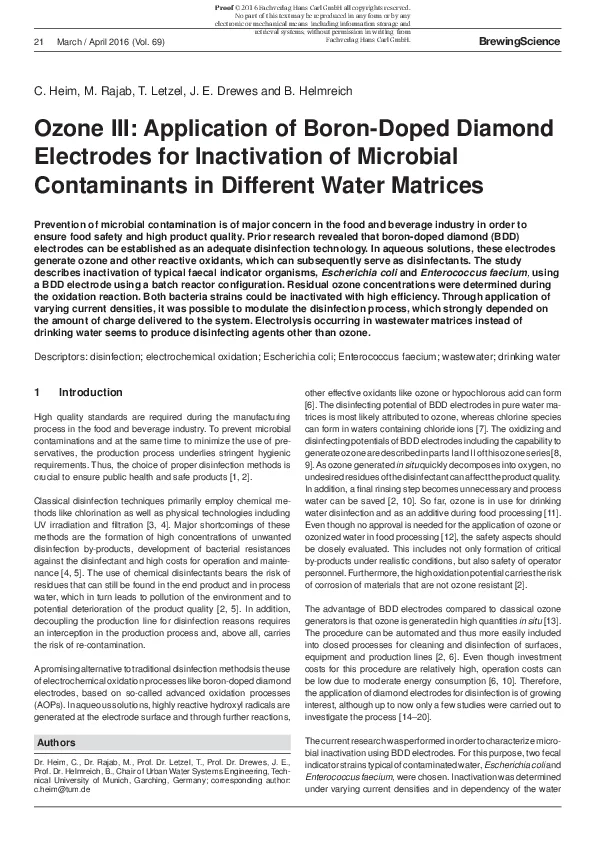Prevention of microbial contamination is of major concern in the food and beverage industry in order to ensure food safety and high product quality. Prior research revealed that boron-doped diamond (BDD) electrodes can be established as an adequate disinfection technology. In aqueous solutions, these electrodes generate ozone and other reactive oxidants, which can subsequently serve as disinfectants. The study describes inactivation of typical faecal indicator organisms, Escherichia coli and Enterococcus faecium, using a BDD electrode using a batch reactor configuration. Residual ozone concentrations were determined during the oxidation reaction. Both bacteria strains could be inactivated with high efficiency. Through application of varying current densities, it was possible to modulate the disinfection process, which strongly depended on the amount of charge delivered to the system. Electrolysis occurring in wastewater matrices instead of drinking water seems to produce disinfecting agents other than ozone.
